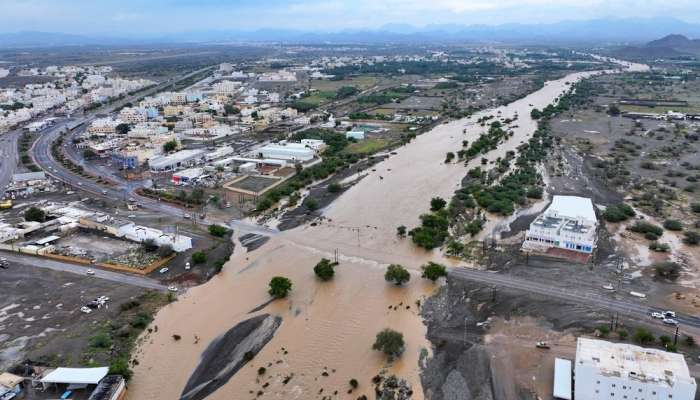Muscat: The National Risk Register in the Sultanate of Oman constitutes a strategic tool within the national risk management system. It is the product of a clear vision and a systematic approach to building human and material capacities through the foresight of potential risks, both natural and non-natural.
The National Risk Register, which is based on scientific methodology and international best practices, provides, through its short, medium, and long-term editions, a precise inventory, documentation, assessment, and analysis of potential risks.
It evaluates their potential impact on a set of values of utmost importance to the Sultanate of Oman and identifies preventive measures.
The Register aims to provide data and insights for decision-makers on potential risks, enhance national integration among relevant entities, identify capacity-building gaps, and improve the preparedness system to confront risks that affect national plans across various sectors, particularly economic and social spheres.
It also helps define national priorities, entrench a culture of risk management at the national, institutional and individual levels, and increase investor confidence in resilience metrics, thereby boosting foreign investment attraction.
Furthermore, the Register seeks to protect human life, safety, security and well-being, ensure the continuity and quality of essential services, safeguard the economy, the environment, heritage and tourist sites, and protect Oman's reputation.
Sheikh Rashid Ahmed Al Shamsi, Undersecretary of the Ministry of Social Development and Head of the Social Sector, stated: "The National Risk Register is a national system built on scientific foundations, specialising in the foresight of potential risks, which are then analysed to establish priorities. Subsequently, national strategies are formulated to manage these risks effectively to mitigate or limit their impacts. These strategies are then incorporated into developmental plans."
He highlighted the importance of the National Risk Register and its contribution to supporting national emergency plans by identifying risks in advance and developing customised response strategies for each risk, while specifying responsible entities and coordination mechanisms.
He affirmed that proactive planning and resource allocation enhance preparedness and rapid recovery from impacts, ensuring the sustainability of national development.
In his turn, Dr. Yousuf Salim Al Hinai, a Risk Management Expert, pointed out that the National Risk Register is a pivotal tool that brings various entities under one umbrella for a shared understanding of risks and enables efficient and swift response.
He added that the Register provides a clear risk classification and facilitates information exchange between entities, which helps in prioritising and directing resources more accurately. It also enables the execution of joint simulation exercises and continuously feeds national plans with lessons learned.
He explained that the National Risk Register is not merely a document but a dynamic operational system that institutionalizes coordination, enhances preparedness, and reduces the impact of crises on society and the economy, making Oman more prepared to confidently and effectively face future challenges.
Meanwhile, Saif Ali Al Yarubi, Managing Editor at Oman News Agency and Media Sector Coordinator, stated that the National Risk Register is guided by Oman Vision 2040 and the five-year plans in prioritizing risks in its short, medium, and long-term editions based on their likelihood of occurrence and severity of impact.
He added that the Register enhances confidence and Oman's reputation in its various future approaches due to its methodology, which provides a clear picture for prediction, assessment, factors that increase or mitigate risks, monitoring, and early warning. This, he affirmed, facilitates risk management, mitigation of their impacts, and the identification and extraction of opportunities from some risks.
He clarified that, in addition to entrenching a culture of risk management at the national and institutional levels, the Register also contributes to its establishment at the family and community levels.
This, he pointed out, includes adherence to safety standards and measures, sourcing information and data from official media institutions, making informed decisions during emergencies, and contributing to community initiatives.
